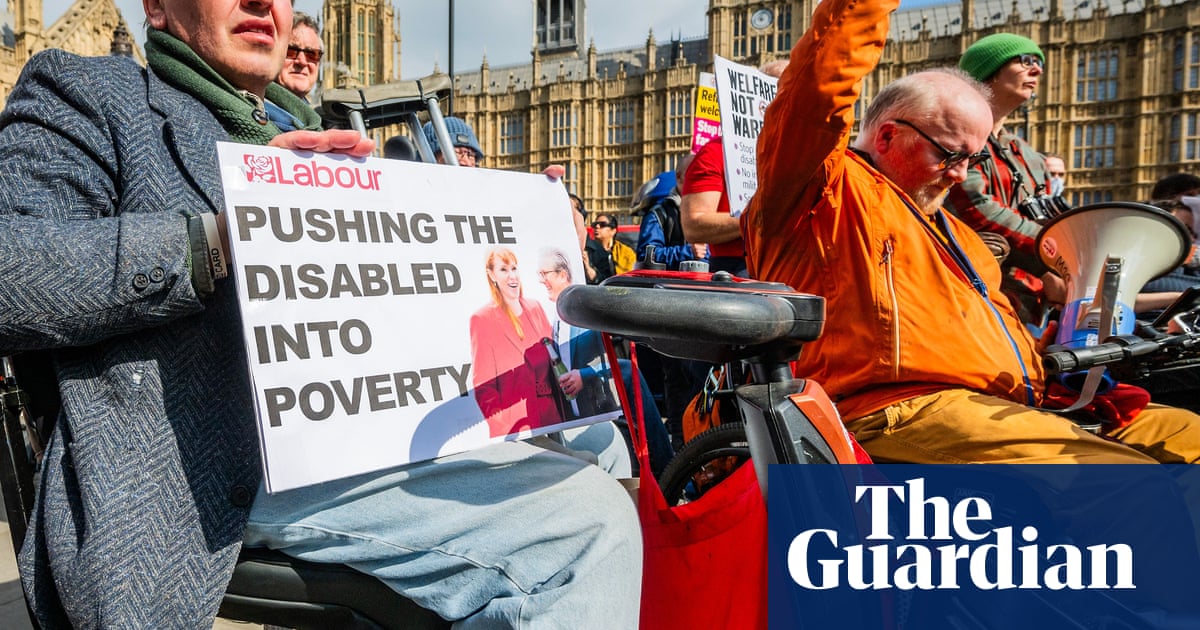Nearly half of all “red wall” voters disapprove of the way Keir Starmer’s government has dealt with benefits-related policy, a poll has found, as ministers faced continued pressure over winter fuel and disability payments, and the two-child benefit cap.
According to the survey across 42 traditionallyLabourseats won by the Conservatives in 2019, 48% of all voters had a somewhat or strongly negative view of the government’s handling of the policies, against 25% who approved.
Even with people who said they voted Labour in last year’s election, opinion was evenly split, with a 38% rating for both approval and disapproval in the poll, carried out by Merlin Strategy.
In another apparent sign of the cut-through ofthe decision to limitthe annual winter fuel payment to just the poorest pensioner households, disapproval over benefits policy was most vehement in older people, with 12% of those aged 65 and over believing ministers had done well and 60% taking the other view.
The poll more widely makes for gloomy reading in Downing Street, with red wall voters also taking a net negative view of the government’s record so far on the economy, health, taxation, immigration, housing, the environment, defence, crime and foreign affairs.
Asked which party would be best placed to handle particular issues, those surveyed ranked Labour top for health and housing, but placed the most faith inReform UKon a series of subjects, including immigration, defence and crime, as well as benefits.
Nigel Farage, the Reform leader, is expected to use a press conference on Tuesday to promise that if his party won an election it wouldrestore the winter fuel paymentto all pensioners, and scrap the rule which prevents parents claiming child tax credit or universal credit for more than two children.
While a number of Labour MPs would agree with this, Starmer’s party is likely to use Farage’s decision to try to place renewed focus on the cost of Reform’s taxation and spending plans, which some economists have said would create a fiscal gap far larger than in Liz Truss’s disastrous mini budget of September 2023.
Last week, Starmerconfirmed that his governmentwould aim to ease the £11,500 threshold over which pensioners are no longer eligible for the winter fuel payment, while giving no details about how this will be done.
He is also facingdisquiet from many Labour MPsover the continued two-child cap, seen as a leading driver of child poverty, and could face a major rebellion over plans to tighten eligibility for the personal independence payment, which goes to those with long-term physical or mental needs, and is intended to help get more people into jobs.
Sign up toHeadlines UK
Get the day’s headlines and highlights emailed direct to you every morning
after newsletter promotion
Speaking on Monday morning, the junior health minister, Karin Smyth, described the shift on winter fuel payments as “the sign of a government that is listening”.
Also on Monday, Labour backbencher Stella Creasy reiterated her call for the two-child limit to end, saying it would take “350,000 children out of poverty overnight”. She said: “It’s worth reflecting on the fact that 60% of those kids are in households where somebody is in work.”
